Stranger Things and its sources!
Did you know the name “Demogorgon” before Stranger Things?
Created with a clear homage to the 80s, the Netflix series revived many icons of the decade, one of its main points being RPG. And that's really cool. Since its first episode, we have fun examples of games and the relationship that our hobby can generate with different points of life such as friends, cultural interests, etc.
In the current season of Stranger Things, we have the game's biggest connection to the series' script so far - not only having a new D&D-inspired enemy, but also introducing new characters and antagonists within this "RPG" core.
And it is precisely about the main points that Stranger Things addresses in its plot connected to the RPG of the 80s that we will talk about in this article.
Warning: There may be some small spoilers ahead.
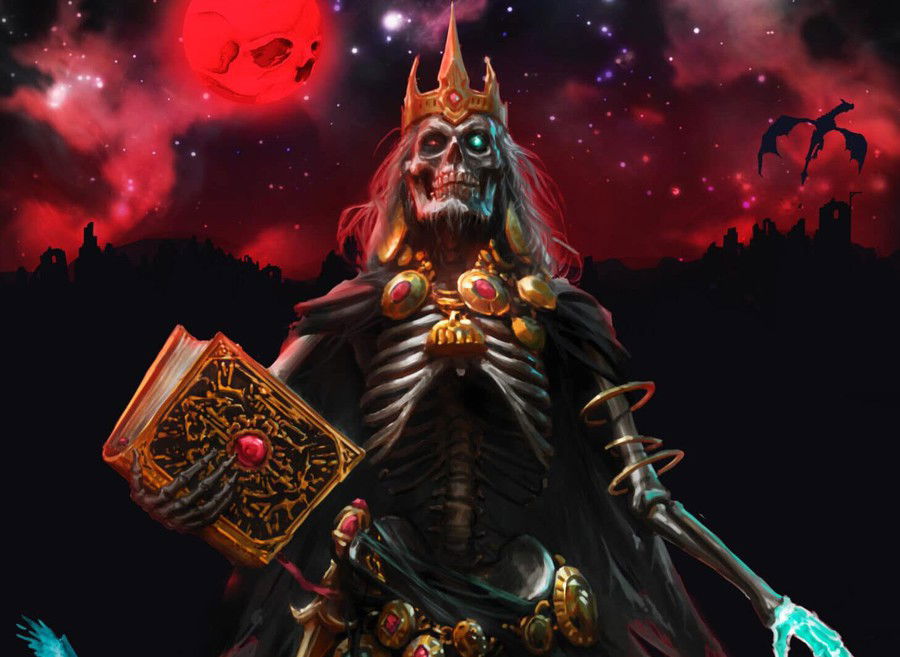
The Archlich, Vecna
Every season of Stranger Things has one or more supernatural entities from the Upside Down, and their main ones are named after Dungeons & Dragons monsters.
We had Demogorgons and Mind Flayers in its last seasons, and in this one we were presented with a new concept: Vecna.
For hardcore D&D fans, this is a famous name. But after all, who or what is Vecna, and what is his connection with the creature of the series?
Vecna is one of the biggest antagonists in Dungeons & Dragons. Having initially emerged as a character in the Greyhawk setting for AD&D, he soon became important enough to influence other worlds from the same publisher.
The character's history is vast. I'll summarize it below, but it's worth noting that many points have been further explored in the official novels, adventures, and scenario books, and new information is constantly emerging with each WotC release to its multiverse.
Origin
Born a human with a strong magical heritage, his mother, Mazzel, was cruelly murdered for demonstrating the same gifts by the rulers of Fleeth, the city he tried to take refuge in as a young man.
Desperate and blinded by revenge, Vecna successfully flees Fleeth and finds a guardian for his arcane gifts, and such an entity would be regarded by him as the very embodiment of magic in the future. We don't know if this information is correct, but the fact is that Vecna quickly became a powerful mage with a special focus on necromancy.
In the quest for more power to avenge his mother's death, Vecna sacrificed his life to transform himself into a Lich, the highest level an undead can reach, being immensely powerful and nearly immortal.
Revenge
After a long time, Vecna, now an undead, had gathered a veritable army of soldiers, mages and zombies to take Fleeth and all the regions nearby. With extreme cruelty, he managed to achieve his goal, even though the victims were already descendants without any direct blame for what happened.
However, the city was already prepared for the attack, and before it fell, everyone counter-attacked the Mage with a powerful divine magic that would have decimated him if not for Acererak, one of his most powerful allies, which saved his existence, but weakened his body already decomposed by the afterlife.
Betrayal
As time passed, Vecna became physically frail—though he kept his arcane powers at a high level.
His right-hand man, Kaz, ended up taking the leadership of many strategic posts and gaining more and more the trust of the Lich, who even presented him with a powerful magical sword coming from his own arcane essence.
What Vecna didn't know is that this very gift would bring his demise, for as Kaz led the sword, he slowly manipulated Vecna, indicating that he must be the true leader of the empire that Vecna created.
In a cowardly attack, Kaz betrays Vecna with his own sword, and a terrible battle erupts between the two. In the end, Vecna's body is destroyed, leaving only his left hand and eyes in the mortal world, and Kaz is completely obliterated by the combat.
Afterlife
Vecna's soul goes to the astral plane while his hand and eye, still in the physical world, become extremely powerful magical artifacts. His influence over these items makes his influence still reside in the minds of his old cult and new ones who seek arcane power.
Over the centuries, the Lich acquires enough influence and power to rise as a Demigod and resurface in his plans of domination.
Now with godlike powers, Vecna creates an avatar on the earth plane by possessing the body of a devoted cultist and easily vanquishes any hero or adventurer who tries to counter his will.
Identifying the growing danger of Vecna back in the world, a real war breaks out commanded by Mordenkainen, another important figure in Dungeons & Dragons mythology, and ends with Vecna's banishment to the deepest mists of Ravenloft by Iuz, another evil demigod who opposed the Archlich's control.
Ravenloft
Ravenloft is a plane separate from any other, but at the same time it can bring in figures of enormous power and trap them in its mists.
Once launched on this plane, Vecna gains from himself Domain, a region within the realms of Ravenloft where he has full control, but which also imprisons him, making it impossible to leave his region delimited by the mysterious rulers of this reality.
His plane was called Cavitius, a massive desert of volcanic ash that slowly absorbs the life energy of any creatures outside its citadel, creating undead obedient to Vecna.
Another surprise was, coincidentally or not, the discovery that Kaz, his former ally and traitor, had also become ruler of a domain alongside his own, Tovag. Which, even making direct combat between the two impossible, immediately created a continuous war on the borders between both kingdoms.
God
His control over his domain was not enough to appease Vecna's will for control and destruction, so using his connection to the material world in the form of his eye and left hand, he devised a plan with his cultists.
The plan would draw another Demigod to Cavitius and, within the plane, would take the entity's powers for himself, raising himself as a greater God.
Surprisingly, the plan works, as Luz, the one who banished him to Ravenloft, falls into his strategy and has the power taken by Vecna within his own plane where he had absolute power. The union of these powers makes Vecna the greatest god of secrets and magic.
With a totally different power level than before, not even the mists of Ravenloft could hold him and after the success of his plan, Vecna escapes from his prison.
Sigil, the City of Doors
At the center of the wheel of D&D's planes and multiverses, a city is treated as the central point of all organization and travel between the infinite realms: Sigil, the city of doors.
In this place, inhabited by beings of all types and powers, there are passages to literally anywhere from its doors. In this way, Sigil is a commercial and strategic center of multiplanar importance.
Vecna, with his new powers, does not only seek domination of the earthly world. Now aware of the existence of numerous plans to control himself, he heads to Sigil and, even with rules forbidding greater gods in the city, manages to enter and show his true power.
Once again, a war breaks out — this time on epic levels. Adventurers, heroes, angels, demons and elementals, beings from all planes band together to defeat a true God for control of Sigil and, consequently, the security of the multiverse.
After combat, Vecna succumbs to the separation of Luz, the demigod absorbed into Ravenloft, which reduces his power as a Greater God and makes him a Minor God—still immensely powerful, but not enough for the megalomania of his initial plan, he runs away.
Vecna Currently
We currently have little information about Vecna. We know that he is looking for ways to elevate his powers to a greater god again, and that cults remain devoted to his existence.
We know that Vecna is alive, we just don't know how long he will keep the peace of the world or risk his existence again to prove once again that he is one of the greatest antagonists of Dungeon & Dragons.
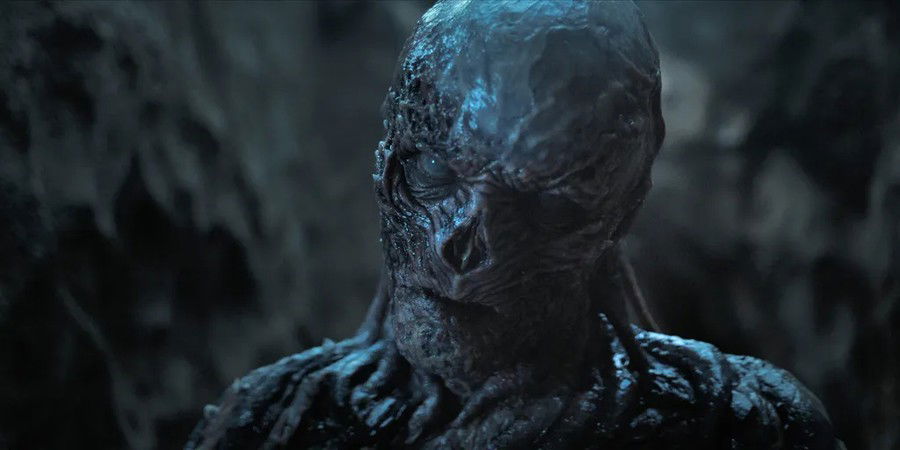
Vecna in Stranger Things
With this mega summary about Vecna in D&D, we can already connect a lot of his story points with the Netflix series.
Here I have massive spoilers from until episode 8 of season four.
We discover that Vecna is actually one of the young people with special powers who trained with Eleven - in this case, he was the "Number One", so far, not shown in the series.
After being helped by Eleven, his revenge instinct kicks in and begins indiscriminately killing the lab members, similar to what Vecna did to Fleeth at the beginning of his evil ascent.
In a violent combat, he ends up having his body sent to the Upside Down, where he is transformed into the creature we see during the season, also similar to the fight with Kaz, someone he considered his ally and who betrayed him - in Eleven's case, a fair “betrayal”, after the acts of violence he practiced.
Even if not through an eye or a hand, the psychic connection Vecna makes and the terror he creates, even without a physical body in the human world, are related to the powers and plans he made in his sojourn in the spirit plane and Ravenloft for so many centuries. .
Whether Vecna will manage to resurface in the physical world or gain even more power in some way, much like her RPG counterpart seeking control over the portals between universes, is what we'll see in this season's part 2. But I don't would doubt even more connections emerge by the end of the series.

RPG for “strangers and outcasts”
RPG is still a niche game within the nerd sphere of hobbies, so to speak, but it was much worse…
Series like Stranger Things itself helped to popularize our game recently, and normalize groups and game designers who are interested in it.
However, in the 80's we were still in the beginning, D&D had been released relatively recently and RPG was still mysterious and unique for newbies, and even for those who knew board games.
Add this to the lack of internet for the dissemination of knowledge on a large scale, and you have a real bubble that made access difficult and deprived many people of knowing what RPG really is, giving rise to all kinds of dubious and incorrect thinking about the activity.
Prejudice with RPGs lasted until recently and has been waning over the last couple of decades, but the feeling of it being a game for outcasts, outsiders, freaks, and other such terms has been a dark mark on the hobby for many years, but not as heavy as our next topic…

Satanic Panic
What is Satanic Panic?
Satanic Panic is the name given to the movement of fear, hatred and persecution generated by the media and cultural perception of the 80's where several institutions, hobbies and people were accused of direct or indirect connection with Satanism, occultism, black magic and other points considered as a taboo in society.
And, of course, RPG was an easy target.
Mixed with the ignorance mentioned in the previous topic and with false accusations of the game being connected to terrible crimes with young people in the USA for many years, the fame of RPG, and especially Dungeons & Dragons, was completely misrepresented by society.
What at first seemed just a misunderstanding and even a way to gain visibility, and soon forced Wizards of the Coast, owner of D&D, to change points of its marketing vision such as book covers and contents and the attempt to unlink of their brand with any real “demonic” symbology.
Shortly thereafter, in the mid-90s and 2000s, this “Satanic Panic” also hit Brazil for similar and equally erroneous reasons, but that is another story…
This is a complex topic that might deserve its own article in the future, so please let us know if you want me to talk about it.
Current comparisons
The internet and the dissemination of nerd culture as something good and not just for strangers and losers, as it was decades ago, has made life a lot easier for those who like games, comics and, of course, RPG.
Although it is far behind the popularity of the other examples, the growth is constant and our hobby becomes more and more recognized, even if by people outside the standard cycle of enthusiasts and nerds.
From time to time, media more desperate for attention try to revive, unsuccessfully, what Satanic Panic did in the 80's. But today we already have concrete evidence of the positive reflection that the RPG brings to its players of all ages and like all crime related cases have already been disconnected from our hobby.
The spirit of the series in its games
We've already talked about the series' connections with the reality of the 80's RPG and our current situation, but what if we want to emulate the essence of Stranger Things on our tables?
I already talked about how to adapt scenarios in this article, it is worth taking a look.
But in case you don't want to adapt completely, there are many scenarios that allow games involving children and the supernatural in a very similar way to Eleven and her group.
Games like Tales from the Loop, Fate and Mutants & Masterminds guarantee storytelling mechanics with children outside a purely childish scope, either by rules focused on that or generic enough to involve them in play.
Want to know more tips on how to play with kids or for kids? Leave a comment!
Conclusion
Stranger Things is in full swing, and new episodes will arrive before the upcoming final season.
Vecna's presence as an immaterial figure capable of violently killing anyone weakened enough by the traumas of the past was a far more aggressive and dangerous sight than any of the monstrous villains of previous seasons, a clear reflection of the growing themes alongside the main characters.
Don't let this moment of hype pass, and spread the word! Such an interesting take on RPG for the public is rare to find, so show it off and invite your friends to play. The more, the merrier!

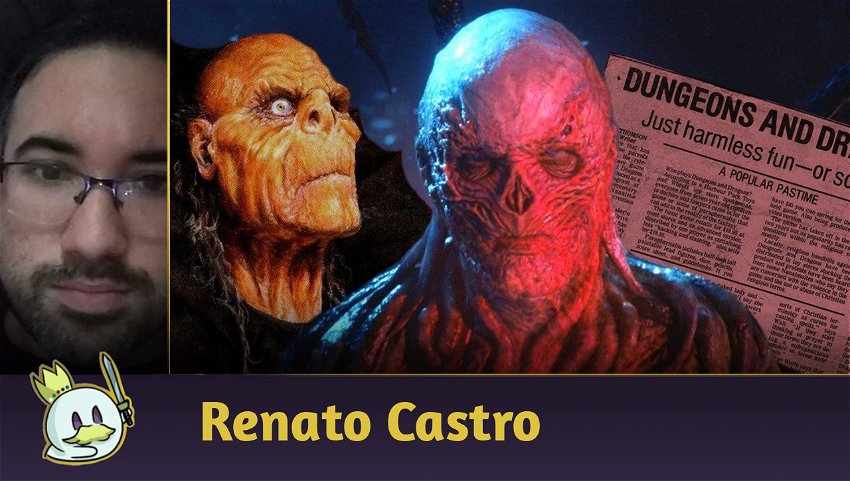







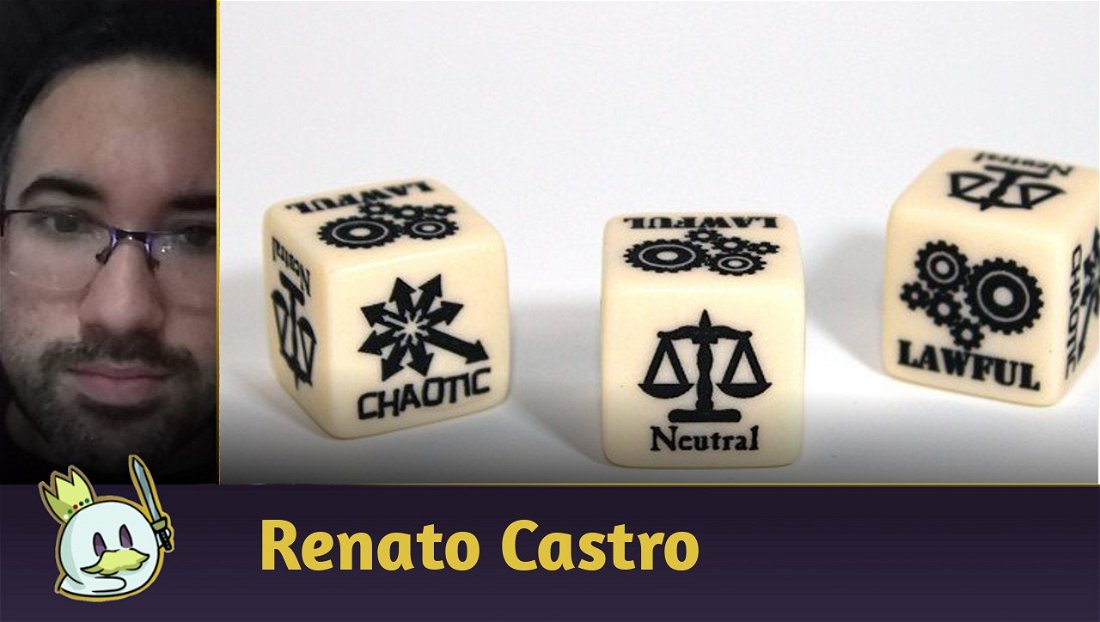
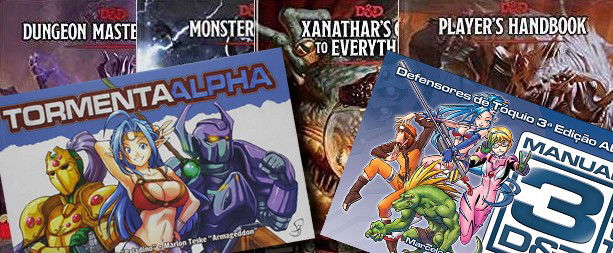



— Comentarios 0
, Reacciones 1
Se el primero en comentar